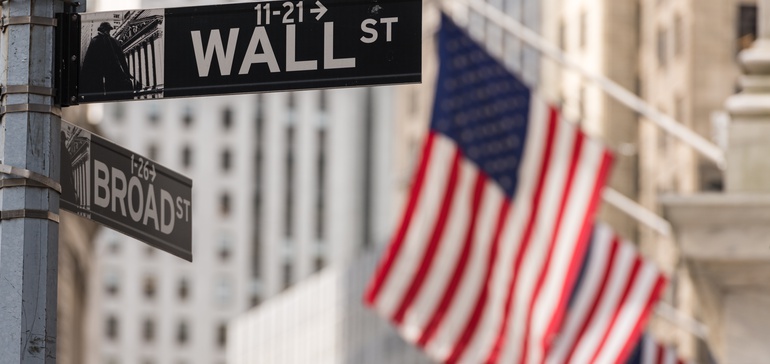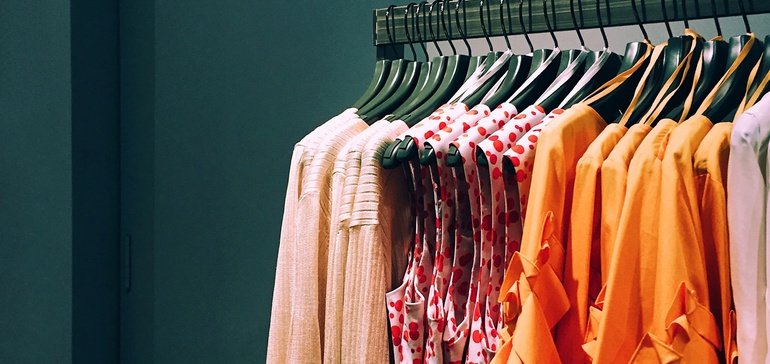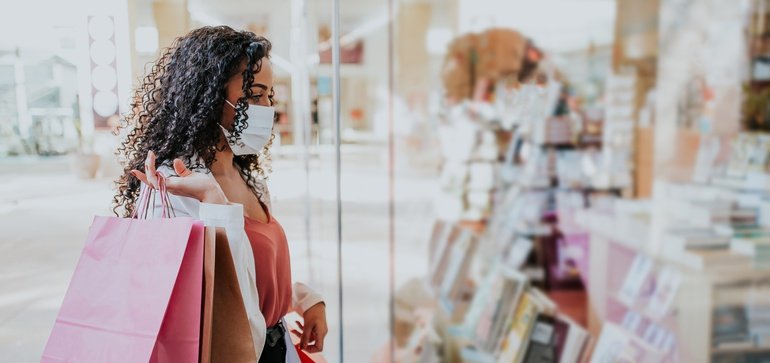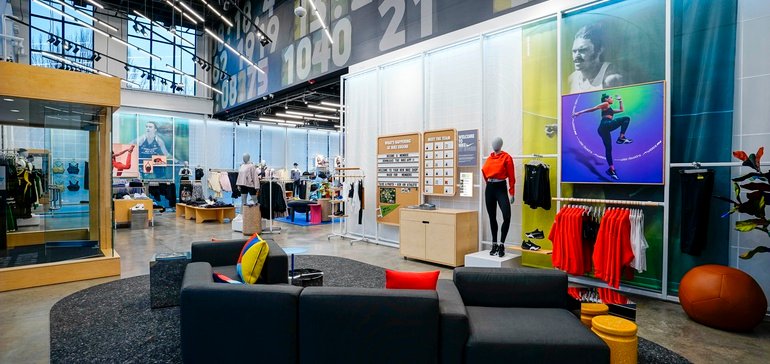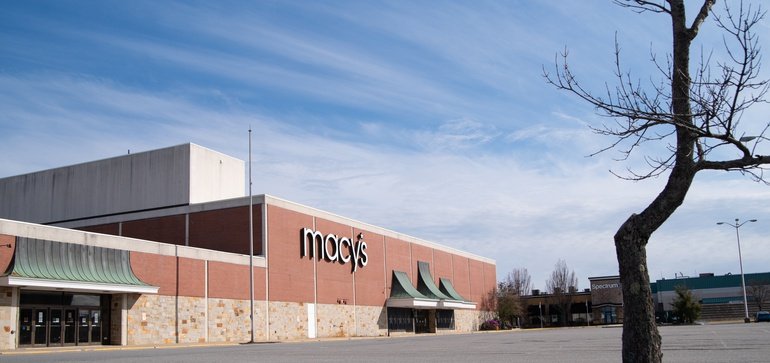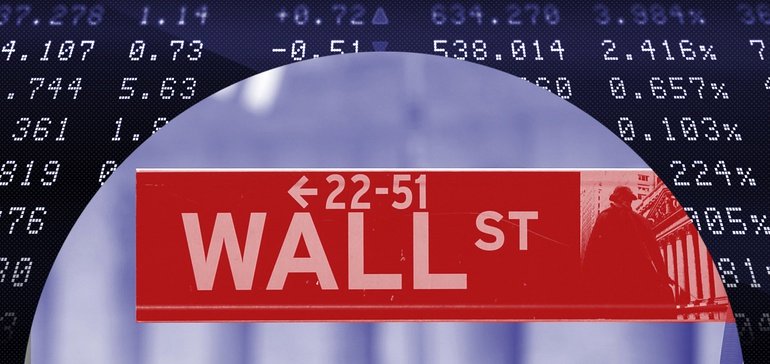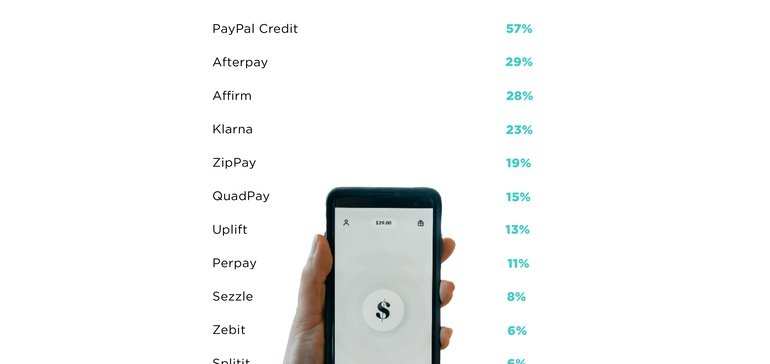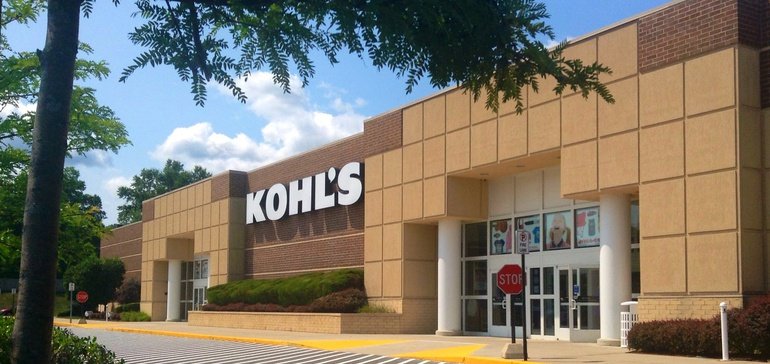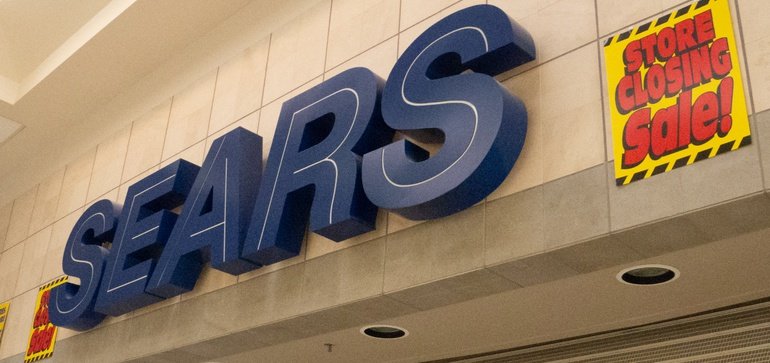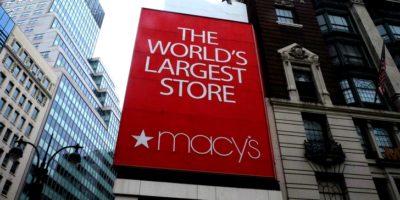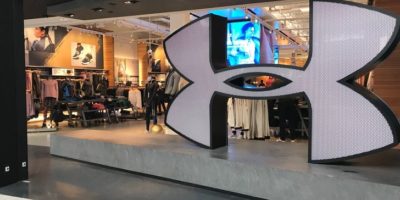Supply buybacks are back, infant
If you require confidence that the globe can go back to the means it was before the introduction of COVID-19, you may bask in this: One element of life for loads of retail business that came to a stop when the pandemic dilemma started has actually returned, with a revenge.
Supply buybacks are back, majorly.
A dangerous infection could not eliminate them. A quick monetary panic and also financial slump simply reduced them down. As well as unlike uneasy job garments or full time workplace life, there is today no indication or conjecture that they may go completely obsolescent in the business globe.
Huge and also little, healthy and balanced and also weak, several otherwise most openly traded stores stopped the method of redeeming their very own supply last springtime. Without overemphasizing, it would certainly have been madness for many optional brick-and-mortar stores to proceed investing their money getting up supply while looking down the barrel of uncertain shop closures, earnings collapse, and also a drawn-out public health and wellness and also recession.
Also somber and also “important” stores like Walmart and also Target that remained open stopped their buybacks as they hoarded their money and also the market took care of unmatched degrees of unpredictability. Bit by bit, however, business have actually gone back to their pre-pandemic monetary and also running standards.
Amongst the biggest stores, buybacks have actually risen much previous pre-pandemic degrees. Increasing revenues and also sales provide the self-confidence to do so. With much of those sales sustained by federal government stimulation investing, investors can partially say thanks to taxpayers for the gains they have actually made this year.
At the same time doubters of the method claim buybacks draw away revenues out of the firm, choking off financial investments in company facilities and also employees.
Perks for investors
Buybacks are so typical in retail, and also undoubtedly throughout the business globe, they can conveniently pass undetected from quarter to quarter up until they pertained to a dead quit.
Store after merchant in 2015 consisted of a time out on buybacks amongst the activities they required to shield their company as COVID-19 started to hold in the united state
Target, as an example, suspended its repurchase program “due to a high degree of unpredictability in the present setting,” Principal Financial Policeman Michael Fiddelke informed experts in May 2020. “This choice was sensible and also regular with our long-lasting resources release top priorities, in which share redeemed just happens when we have excess money within the restrictions of our center A credit report rankings after we have actually completely bought our company and also sustained our reward.”
However this year, the landscape is really various. Customer need has actually risen back, sustained by vaccinations, the economic situation and also federal government stimulation. Most of the biggest stores discovered they really did fairly well throughout the pandemic, regardless of substantial volatility and also unmatched unpredictability, and also have actually also gotten consumers and also market share.
Investors are gaining the incentives of the brighter expectation.
The monetary tale of the globe’s biggest stores is intriguing by itself. In the 2nd quarter of 2019, Walmart, Lowe’s and also House Depot, as an example, all redeemed greater than $1 billion in supply. In Q2 2020, that number was $0 for all 3, and also for many various other Lot of money 500 stores as they came to grips with pandemic volatility.
Checking Out Q2 this year, those 3 stores invested a cumulative $8.5 billion on buybacks.
Buybacks by the biggest united state stores
| Business | Q2 2019 | Q2 2020 | Q2 2021 |
|---|---|---|---|
| Walmart | $ 1.6 billion | $ 0 | $ 2.4 billion |
| Amazon.com | $ 0 | $ 0 | $ 0 |
| Costco | $ 43.5 million | $ 31.4 million | $ 179.7 million |
| House Depot | $ 1.3 billion | $ 0 | $ 3 billion |
| Target | $ 341 million | $ 0 | $ 1.5 billion |
| Lowe’s | $ 2 billion | $ 0 | $ 3.1 billion |
| Ideal Buy | $ 230 million | $ 0 | $ 396 million |
| Buck General | $ 185 million | $ 602 million | $ 699.8 million |
| TJX Cos | $ 300 million | $ 0 | $ 300 million |
| Buck Tree | $ 88.4 million | $ 0 | $ 700 million |
Resource: News release, SEC filings. Listing consists of U.S.-based stores on 2021 Lot of money 500 listing. Given that differ by firm, in many cases we made use of information from the quarter that many carefully straightens with the fiscal year
Walmart redeemed $2.4 billion of supply in Q2– well past its 2019 repurchases, and also certainly a fair bit greater than in 2015’s no buybacks too.
It’s likewise some $800 million greater than Walmart invested in added benefits to its labor force throughout the whole year of 2020, when its affiliates got on the cutting edge of the pandemic. Q2’s buyback cash would certainly suffice to offer each of Walmart’s 2.2 million affiliates virtually an added $1,100 today, when stores are rushing to work with and also maintain employees.
While Walmart has actually introduced wage rises and also even more full time hiring, a few of its employees have actually been asking for even more.
” Reinvestment of also simply a part of the billions that they’re investing in buybacks can really money substantial [wage] rises,” Bianca Agustin, business liability supervisor at the employee lobbyist team United for Regard, stated in a meeting. Participants of the lobbyist team that are likewise Walmart investors have actually pressed the firm in the past to match any type of buybacks with an equivalent quantity for Walmart’s associate supply acquisition strategy.
Walmart is never alone. In Q2, Lowe’s execs anticipated to pay $91 million in benefits to employees via its profit-sharing program. Lowe’s investors, at the same time, were compensated with $3.1 billion in buybacks. Provided to the house enhancement merchant’s 300,000 affiliates, that would certainly have totaled up to $10,300 per employee.
For the complete , Lowe’s intend on redeeming $9 billion of its very own supply. The house enhancement merchant is likewise assisting to blaze a trail in reanimating the pre-pandemic method of financing buybacks with obtained cash.
In September, Lowe’s introduced a $2 billion bond offering. The firm provided share repurchases initially amongst feasible uses money from the financial obligation issuance, adhered to by business-related tasks like purchases and also capital investment.
For a business with a durable efficiency and also paying reduced rate of interest, such as Lowe’s, obtaining to redeem supply might not increase several brows. However also for healthy and balanced business, the method develops added danger by including a brand-new responsibility for something that does not bring a return as a financial investment in business would certainly. (Business can theoretically re-sell the supply they acquire on the marketplace for an earnings, however study has actually revealed they seldom do.)
” We simply never ever like to see when stores obtain to do repurchases,” Pulse Scores chief executive officer Dennis Cantalupo stated.
A sunnier expectation
In the abstract, cash invested in buybacks can be invested in anything. It can most likely to staff members, shop renovations, technology facilities and so forth. You would certainly be difficult pushed to locate a merchant that could not gain from added financial investments in any one of the above.
Take Bed Bathroom & & Beyond. The house products merchant has actually remained in turn-around setting for several years currently and also has actually overhauled its C-suite beginning with the arrival of chief executive officer Mark Tritton from Target.
The firm’s Q2 brought dropping similar sales and also a $73.2 million bottom line– complying with a brilliant efficiency throughout the pandemic. It functions as a tip that Bed Bathroom & & Beyond’s change is not total. Coming off the unsatisfactory quarter, the merchant introduced it will virtually increase its share repurchases for the , finishing up early a strategy to invest $1 billion overall over 3 years on buybacks.
Ideal Buy, to take one more instance, dismissed countless full time staff members early in the year as it attempts to adjust to an electronically driven landscape. Simply months later on throughout the summer season, the merchant’s chief executive officer, Cori Barry, informed a CNN press reporter concerning the trouble hiring staff members in a limited labor market.
At the exact same time, throughout Q2, the firm invested $396 million on buybacks. With that said cash– equally as an idea experiment– Ideal Get can manage to supply virtually 7,400 affiliates a $50,000 yearly income.
Which’s simply one quarter. For the complete , Ideal Buy strategies to invest $2 billion on buybacks. In February, its board greenlit a brand-new $5 billion buyback strategy.
Others have actually introduced brand-new buyback campaigns too. Target, which is carrying out along with any type of tradition merchant can actually be anticipated to, introduced a brand-new, $15 billion supply buyback program authorized by its board that will certainly work after the firm’s $5 billion redeemed program completes.
Macy’s, which endured among the inmost monetary impacts amongst stores throughout the most awful months of the pandemic age, renewed its share redeemed program after Q2, with the board accrediting buybacks of as much as $500 million.
” Their annual report has to do with what it was heading right into the pandemic,” Cantalupo stated of Macy’s. “Their margins are boosting. Yes, I prefer to see them take that money and also remain to pay for financial obligation. However the investors check out points a little in a different way than a credit scores expert.”
In the exact same news release revealing its half a billion buck share redeemed program, Macy’s published an equivalent sales boost covering 60% and also, probably much more notably– a two-year surge in compensations of virtually 6%. Its sales had actually not just recouped from 2020 however had actually carried on.
The solid uptick in sales has actually placed stores on more powerful monetary ground, sustaining self-confidence in business and also the market at big, which is most likely what is driving business like Macy’s to reactivate their repurchases after putting on hold the programs in 2015.
In a September meeting, Sarah Wyeth, elderly supervisor and also field lead at S&P Global Scores, stated none of the reported repurchases in the retail globe this year elevated alarm systems or adversely influenced credit history rankings.
” Buybacks are being done still within monetary plans, and also the basics back it up,” Wyeth stated. “There’s a little of care in totally returning back to their annual report and also plans prior to the pandemic. However … the dangers are moderating.”
In regards to durability versus difficulty, like a pandemic or a disappointment quarter, buybacks at the very least have the benefit of versatility. They are a moving task.
” Things concerning repurchases is, it’s volunteer,” Cantalupo stated. “If you’re not suching as the setting, or points aren’t going specifically the means you assumed they would certainly go, you do not need to repurchase shares. It’s completely based upon market problems.”
However usually also decreasing sales and also revenues do not quit buybacks, not completely. Sales at Express Inc., for example, decreased for 4 years straight after 2015. The clothing merchant downsized repurchases in some– however not all– years, however did not stop them also as it had a hard time towards a turn-around, not up until the pandemic hit.
The federal government boosts investor returns
The 2nd quarter was an inflection factor for much of retail. At shopping malls, website traffic got to rebound degrees after the dark and also devastating year of 2020.
Amongst Lot of money 500 stores alone, the overall investing on buybacks in Q2 of this year got to around $12.3 billion. That is greater than two times the quantity invested in buybacks by that friend in the exact same duration in 2019 and also most likely sustained by the solid efficiencies of those business.
Which is simply the biggest stores on the planet. There are loads of various other openly traded stores, most of which take part in buybacks of smaller sized range however comparable consistency.
To some extent, taxpayers and also the federal government are moneying business buybacks in retail.
Customers this year have actually been investing stimulation money at stores, getting products while still in some procedure preventing traveling, dining establishments and also various other experiential investing as COVID-19 remains to distribute.
It would certainly be difficult to also think just how much of this year’s buyback bucks came from stimulation checks, however there can be little question that a suitable piece of it did.
William Lazonick, head of state of the Academic-Industry Study Network and also a teacher emeritus of business economics at the College of Massachusetts, stated that buybacks were being sustained by public investing to the level that “revenues are being produced by the truth that you’re rising to even more ability and also earnings are being sustained by substantial federal government investing.”
Lazonick explained this puts on both monetary investing such as stimulation checks and also boosted unemployment insurance along with the Federal Get’s measurable relieving procedures. The last has actually reduced the expenses of loaning and also sustained even more financial obligation funding, which in many cases, such as Lowe’s, can most likely to equip repurchases. It has actually likewise pressed even more cash right into the stock exchange as capitalists look for return, increasing worths.
‘ A considerable decrease in company financial investment’
Buybacks weren’t constantly an attribute of the modern-day company and also economic situation. The Stocks and also Exchange Compensation under the Reagan Management opened up evictions with a guideline modification in the very early 1980s that allowed business to make acquisitions of their very own shares as much as 25% of the firm supply’s general everyday trading quantity. Before that, many buybacks were considered verboten market adjustment.
In filings and also teleconference, execs themselves mount buybacks as a go back to investors– suggesting they are suggested to straight profit capitalists. The system for that to take place is supply cost rises that accompany the repurchases, which would certainly have been taken into consideration unlawful market adjustment some 4 years earlier.
When Bed Bathroom & & Beyond introduced its brand-new share acquisition strategies, as an example, equity experts with Telsey Advisory Team composed in a research study note that investors must watch it as “particularly” favorable. The experts stated that “we approximate [it] has the prospective to lower the share matter by 15% and also increase 2022 EPS.”
It’s a straightforward formula: lower shares and also revenues per share increase with the smaller sized . That subsequently can offer share costs an increase, as capitalists look carefully at EPS as a statistics. On the various other hand, news of brand-new capital expense or wage rises might be consulted with a depression in share cost.
” Business complete versus each various other currently in regards to supply cost,” Lazonick stated. “So if their supply cost is not rising quick sufficient, they do buybacks. For business, also if they wish to, it’s difficult to draw out of it.”
Retail shares might be under personal stress, with the ruin and also grief in the market of the previous 5 years of personal bankruptcies and also interruption. Amongst the united state stores in the Lot of money 500, just one has actually not made any type of repurchases recently: Amazon.com.
It’s not difficult to see why. At the time of creating, Amazon.com’s supply cost was greater than $3,500 a share, producing a market cap of virtually $1.8 trillion. Comparative, shares in Walmart– still the biggest firm on the planet by earnings– deserved concerning $150, and also the firm’s market cap stood at around $412 billion.
In addition to market stress, execs, that get the mass of their pay in firm shares, are straight incentivized to make use of firm sources to redeem supply. With exec payment usually connected to EPS metrics, buybacks boost the pay of those running the firm.
Several business acquire shares in tandem with dispersing money rewards to investors. The primary distinction in between them is that rewards prefer owners of supply, while buybacks prefer vendors. Lazonick and also others have actually suggested that rewards make capitalists much more bought the long-lasting efficiency of a business, whereas buybacks prefer short-termism.
If investors like them, and also execs gain from them, buybacks today are a deeply deep-rooted attribute of the business retail globe. However the truth that buybacks were enabled via SEC rulemaking indicates they can likewise be stopped via the exact same procedure.
As it takes place, Head of state Joe Biden has actually openly slammed supply buybacks in the past. “Since the Stocks and also Exchange Compensation transformed the buyback regulations in 1982, there has actually been a spreading in share repurchases,” Biden composed in an op-ed for The Wall surface Road Journal in 2016, when he was vice head of state under Barack Obama. “This focus on returning revenues to investors has actually caused a considerable decrease in company financial investment.”
Much more lately, in March of in 2015, Biden while on the project path advised a stop to buybacks for a complete year as the coronavirus started to grab the nation and also economic situation. Ever since, desired or otherwise, Biden’s stimulation strategies have actually assisted gas buybacks amongst retail business.
Us senate Democrats have actually likewise taken into consideration controling buybacks via a 2% excise tax obligation on the business supply repurchases. Doubters of buybacks have actually stated that the suggested tax obligation is reasonably modest and also might have little influence. A CNBC study of CFOs discovered that a bulk stated the tax obligation would certainly create them to redeem less of their very own shares, while 40% stated it would certainly have no effect on their redeeming methods.
” If they establish it at 50%, that may be an excellent concept,” Lazonick stated, indicating an example to cigarettes that has actually turned up in the discussion. “If you place a tiny tax obligation on cigarettes, you would certainly increase even more earnings and also even more individuals would certainly smoke. If you place an extremely high tax obligation, you’re actually informing individuals, ‘Do not smoke cigarettes.’ It’s the matching of placing ‘These points can eliminate you’ on business doing buybacks.”
Comply With.
Ben Unglesbee.
on.
Twitter.
